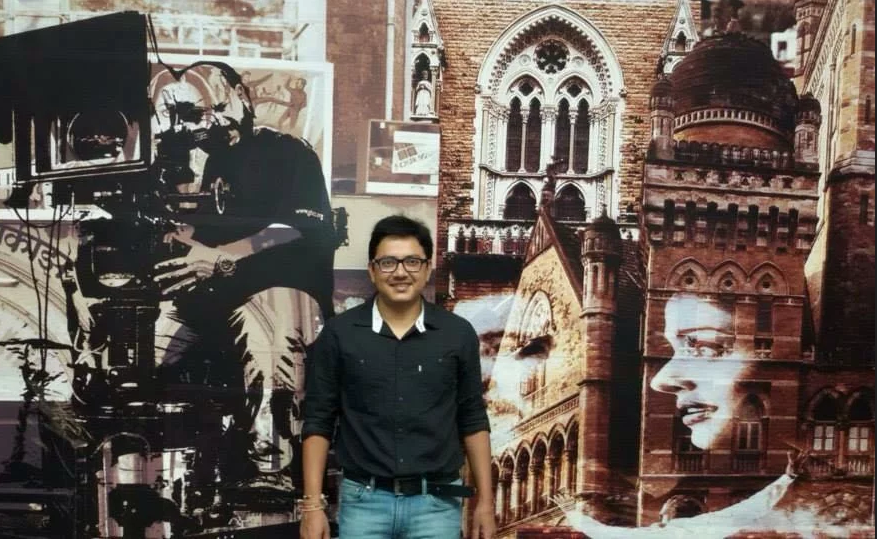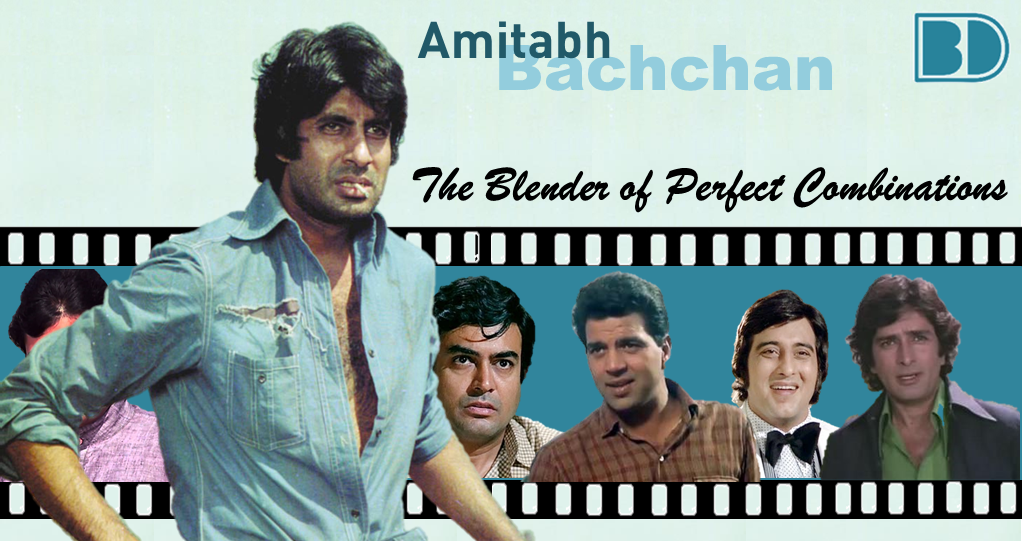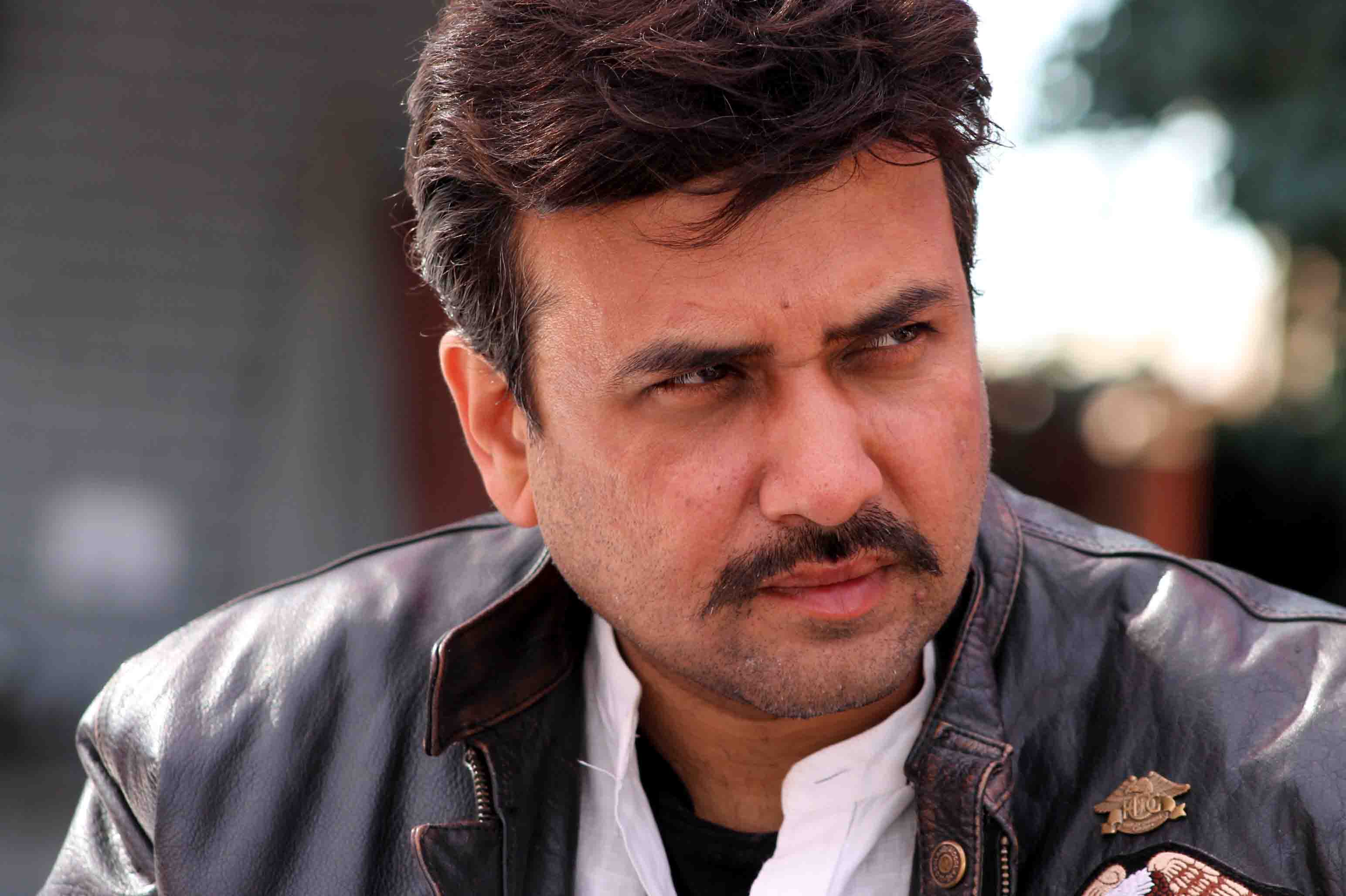Vikramaditya Motwane’s latest directorial venture Trapped is the story of a man’s (Rajkummar Rao) struggle for survival after he inadvertently gets locked inside his own apartment. The story which is penned by Amit Joshi is inspired from a similar incident which occurred with Joshi while he was staying in a flat in suburban Mumbai.
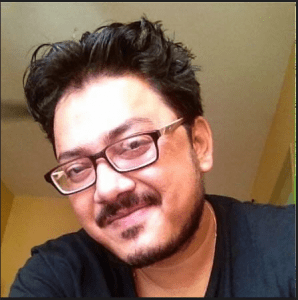
But it wasn’t just this incident that triggered the idea for this Rajkummar Rao starrer. Since a young age, Joshi was creatively inclined and began his journey by drawing cartoons, then writing poems and pursuing theater before making the eventual transition to scriptwriting. But this transition saw Joshi give up his cushy corporate job and move to Mumbai to realize his scriptwriting aspirations. A chance encounter with Motwane led Joshi to pen the script along with Hardik Mehta. From pursuing graduation in Mathematics to writing one of the most eagerly awaited Hindi films of this year, Joshi has chartered quite a journey. After premiering to rave reviews at last year’s Jio MAMI Mumbai Film Festival with Star, Trapped opens in cinemas on the 17th of March.
We recently caught up with Joshi and spoke to him about his journey, his experience of working with Motwane, using a real life incident to led Joshi to write the script along with Hardik Mehta. Republished below are excerpts from the same.
We would love to know about your early days and what prompted your foray into scriptwriting?
As a child, my first inclination towards creativity came by drawing cartoons and as I grew up and started understanding Hindi and English, I started reading whatever literature came my way including comics. I still draw and whenever I am writing now, I begin my process by drawing the characters. Though of late, it has reduced. But writing has been a gradual process. From drawing cartoons I moved towards writing poetry. I started writing poetry at the age of seven and have continued it till this date. Once I moved into my teens, I started listening to songs and later composing it. But I was only pursuing it as a hobby and was not at all serious about it.
After my post graduation in Master of Computer Application, I got my first job in Delhi. In my professional career too, God was kind to me as I moved on to senior roles quite smoothly including my last profile which was of a Manager. With regards to scriptwriting, I always had a story to tell. In my childhood, I was on the quieter side. But I used to love sports. And when I was not playing sports, I would sit down and think of story ideas and try elaborating on it. Also, my father’s best friend had a huge library of films. During summer vacations I would go to his house and watch films. So I was very well exposed to Hindi cinema. But I had limited exposure to English cinema except for those which would play on TV.
During my professional career, I would love narrating stories, though I knew nothing about screenwriting. During one appraisal discussion, my boss asked me about what I want to do next. He would always say that one must do the things they really want to. During the appraisal meeting, I realized that I really like films and why am I shying away from this fact? But a persistent thought was am I good enough? So I wrote a book (my first) on poetry titled Mera Prem Sweekar Karo which has not been published yet. There are times when you get to introspect yourself and know that this is what you want to do. Once you have that kind of a revelation, you don’t need a second point of view. Then I thought I should pursue scriptwriting professionally. Eventually, I joined theater where I wrote acts which helped me understand the basics of writing. After I quit my job I learned screenwriting through self-study and decided that this is what I want to do. I told my parents and others about the decision to pursue scriptwriting very late.
Later I did theater which was a liberating experience. Though most of the people around were 17 or 18-year-old kids, I was energetic and would try and contribute to the plays even if I was not a part of it. And that’s how I understood Manto, Premchand, and other literary greats.
How did the story of Trapped come about? How did you go about writing it and how much of it is derived or inspired from real life experiences? Are there any specific experiences which you would like to recall?
One day I was toying with an idea that focussed on a specific character and location. But I thought I should tell a story which isn’t too complex, is interesting and it has to have certain points that would make you laugh, cry or trigger certain emotions. Incidentally, I myself got stuck one day in my apartment in Goregaon which had those round locks. When I tried to open the door, it did not open and left me ‘trapped’ inside my flat. I did get out after an hour, but that incident triggered the idea. I was already toying with the idea of a single character. And I think I was fortunate that such an incident occurred with me (laughs).
I used to stay on the sixth floor and thought that even if I shout or make a noise; people might not get to know it. And I am not that kind of person who will intrude into someone’s space. So it was very hard for me to ask for help. Once I got that idea, I was very clear about it and wrote it. One thing I wanted to say through the story was that today we are surrounded so much by mobiles and other technological advancements that often we don’t even have time for ourselves.
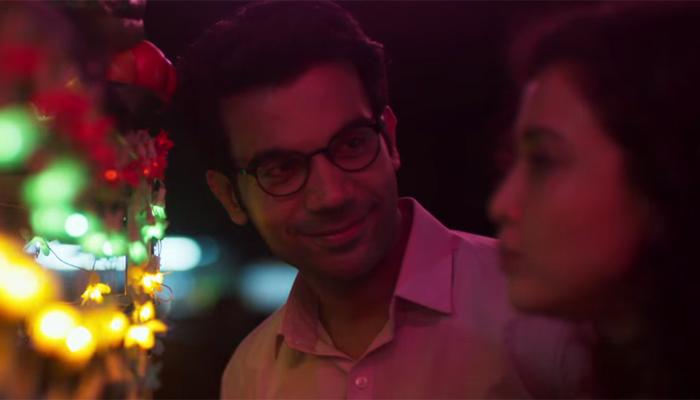
Vikramaditya Motwane had said in an interview that he had got the script in his mail following which he decided to make the film. We would love to know more about this journey of the script. Could you also talk about your experience of working with him?
I had completed this story in 2014. When I developed this idea, I was facing the problem of how do I approach people as I had this problem of not speaking up. I was also facing the issue of how do I go up to people and tell them that I want to be a writer. I am still trying to work towards being more open.
For a while, I was procrastinating about meeting people and was held back by thoughts such as what if the people do not meet me and I kept holding myself back. I had spoken to my friend and told him that I must approach someone who will understand this story. He said Phantom Films will surely understand.
So one fine day I decided to approach them. And as I was walking towards their office, I saw Vikramaditya Motwane on the stairs while he was exiting the office. I told him that I have a story idea which I want to narrate to him. He was kind enough to share his email id with me and asked me to send across the story idea. And that’s how the story reached him following which he decided to make the film. I was amazed by the fact that such a noted director was kind enough to share his mail id and later chose to make a film based on my story. The art of screenwriting I learned was thanks to him. And it was a great experience working with him. When you are starting your journey and get to work with somebody like him, one will always feel blessed.
You have written this film along with Hardik Mehta. Could you talk about how you went about collaborating with him on the script? How does the scriptwriting process vary when it is a collaborative effort vis-a-vis working on it individually?
When I met Vikramaditya after completing my script, he introduced me to Hardik who is one of the kindest persons I know. He is always happy and will motivate you. I got comfortable with Hardik instantly. Vikramaditya had asked both of us to sit together and jam, so that we (Hardik and me) can have an opinion of what we have written and developed it further. Both of us used to meet on a daily basis and Hardik would push me to do better and give feedback on what was working and what wasn’t. He would also add his inputs.
When I had written the first draft it was lengthy. Since Hardik had written scripts earlier and directed a National Award winning film (Amdavad Ma Famous), there were certain things he knew about. Working with Hardik was a learning experience as he exposed me to World Cinema when we were developing the script. And it was due to Hardik we were able to make the script into a tight and concise affair.
I have always felt that creativity is a beautiful thing. Filmmaking is a collaborative effort anyways and you can’t work in isolation. The germ of an idea starts from a particular person and everybody contributes to it and completes the process. But while you are writing and putting down your thoughts, one does need some solace to bring out the best in you. I feel individually you should develop an idea and then take opinions from the people who are collaborating with you. The whole scriptwriting process with Vikramaditya and Hardik involved a lot of deliberations and discussions. And we really enjoyed the process.
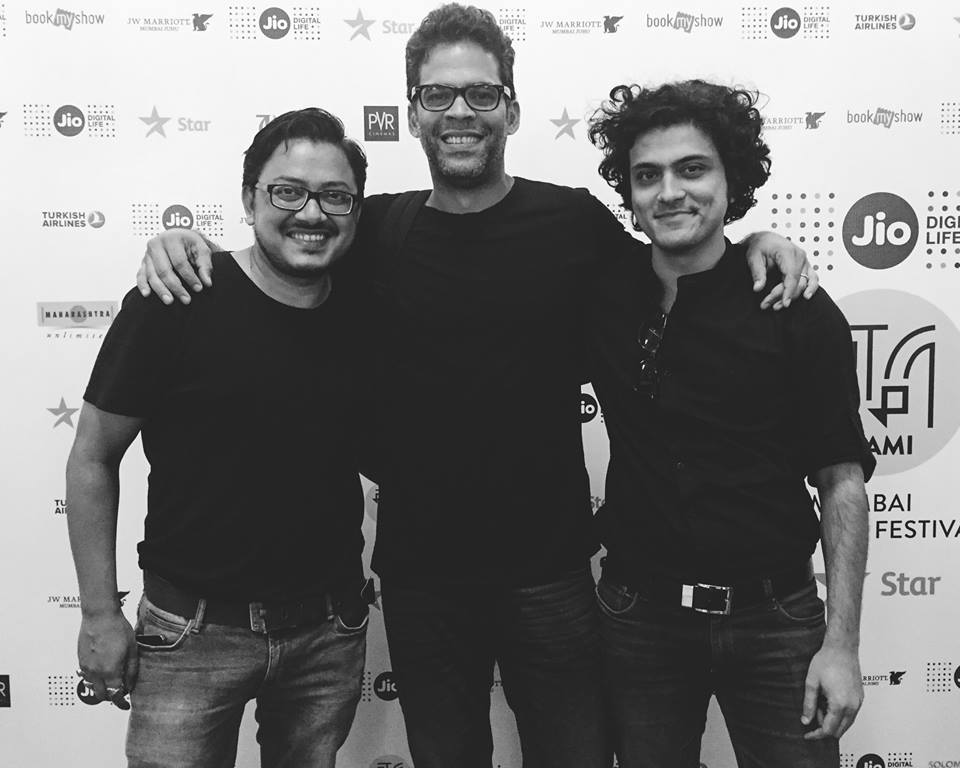
What were the other challenges that you faced while writing a script that mostly revolves around a single protagonist and takes place within a confined space?
It was difficult to write a story that was based on a single character since people want to watch good locations, songs, love stories etc. And with a single character, all these dimensions are ruled out. But it also gives you an opportunity to try out new things. The challenge was how one could add black humor to the story and make it more interesting.
Quite a few Indian films have focussed on survival stories. But none of them have been set in which the protagonist is trying to survive in a closed or claustrophobic environment. In your opinion, what could be the reasons for this reluctance by Indian filmmakers to explore this genre?
I don’t know what could be the reason for it. But it’s good for me that Indian filmmakers have not explored this genre till now (laughs).
Could you talk a bit more about your scriptwriting process and what has inspired it?
When I am excited about an idea I start developing it. But it should not be just a random thought and has to culminate into something interesting. I want to say certain things that are hidden and want to convey it in an interesting manner. After a certain time, once you start living with an idea, it propels you to put it down on paper.
My maximum time goes in developing the first scene as the first 5 minutes of your script gives you an idea as to where it is headed. I am always inspired by ideas and stories that tell something new. Amongst films and filmmakers, I would rate Pyaasa and Christopher Nolan as my inspirations. The latter for the way he tells his story, which is interesting and makes you believe in him.
Christopher Nolan’s Architecture Of Visuals In Memento, A Complete Study
Often filmmaking is viewed as a natural progression of a scriptwriter’s journey? Do you intend to don the director’s hat in the future?
As of now, I am just enjoying the course my life has taken. I have never made concise plans, though I do have an aim in mind. When I was doing theater I had never thought I would get into screenwriting. But now I am enjoying screenwriting though I don’t know what will happen tomorrow. But I am positive about whatever opportunities I get to express myself, be it writing songs, poems or stories, I will be happy doing that.
The film was premiered last year at Jio MAMI Mumbai Film Festival with Star. Could you talk about your experience of attending the same? And are there any interesting experiences you would like to share?
Prior to the premiere, I had seen the film when Vikram had kept a private screening. But I had not seen the film with such a big audience. And we were anxious to gauge the audience feedback and see how they react to the film. It was a one of a kind experience and I really loved it because people were laughing at the right places and getting entertained which gave us a high. I should thank Vikram again because if he hadn’t given me this opportunity, I would not have got to experience all of these things.
People asked us about the ending and why did we choose to end the film in this way? We had contemplated a lot over it and thought of many different ways of closing the story before we zeroed in on the current ending. Only if you get connected to a film, you can ask such questions. I was very happy with the way people were reacting because such reactions positively motivate you to try newer things in life.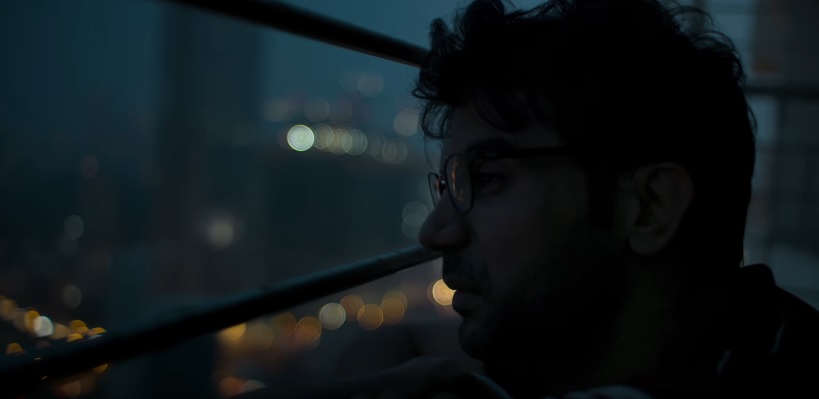
Could you talk about your forthcoming projects?
I have written two films including a Sports Comedy cum Biopic. I have approached and treated it in a different way. It’s been picked up by a big production house and should go into production soon. I have also written a road film for Shakti Hassija. There are a couple of more ideas in the pipeline. But I am waiting to see how Trapped is received.
Finally, do you have any words of wisdom for aspiring scriptwriters?
I am also learning the process as I go along. So, based on my experience the only thing I would like to say is that you keep on learning as you go ahead. You can join any filmmaking school to learn the craft. But at the end of the day, all of it depends on your internal drive.
Nowadays, all the information is accessible through the internet. When I had completed Trapped, the ‘Three Act Structure’ was also not very clear to me. I learned all of it during the scriptwriting process. Today, there are so many scripts available online and it is very clear as to how you can go about understanding the scriptwriting process. Nobody expects you to learn all the things on the first day itself and neither is it possible. An entire lifespan would fall short for learning and improve your creative process. But there is always scope for improvement.
Akira Kurosawa Connects Dream, Memories & Reading With Filmmaking
Interview By: Aditya Savnal

